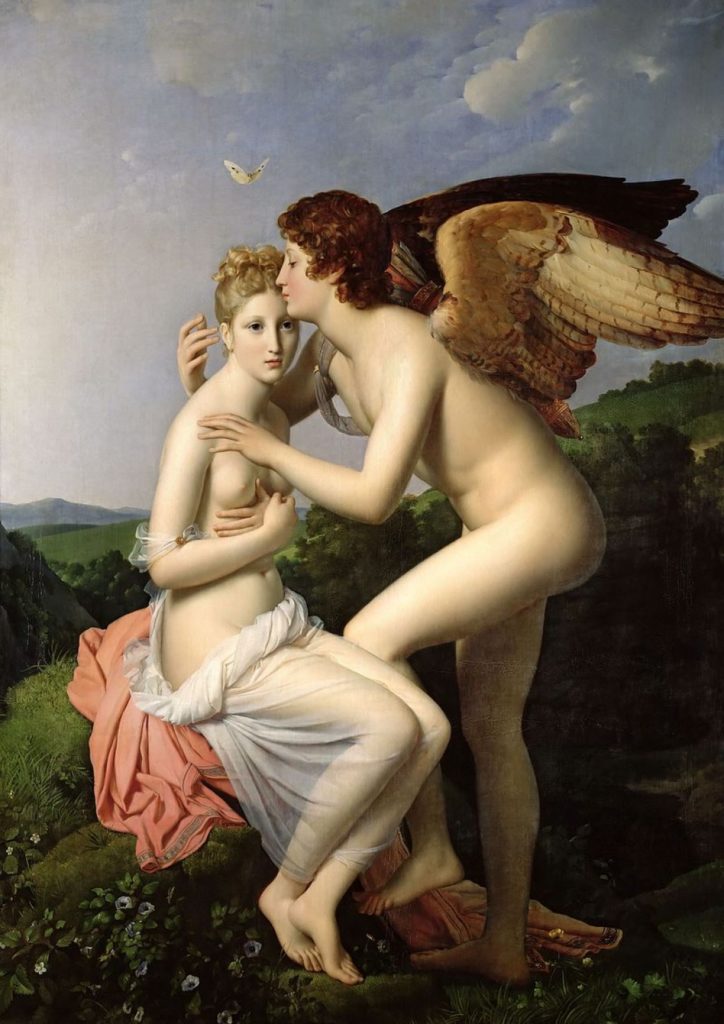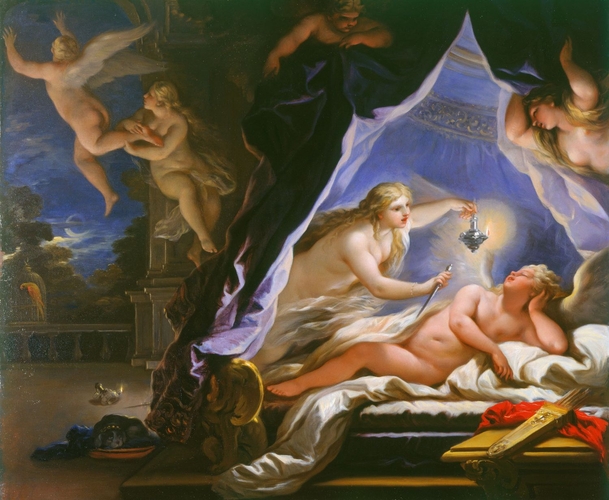November 4, 2019
In Which a Writer Confesses She Has Thoughts About Desire

Last month, I was at a convention in Ottawa where I had been assigned to a panel to read a “difficult passage” from one of my works.
This was both a simple assignment and absolutely impossible. I know exactly what I find difficult. It is so difficult for me that I have managed to stay ten billion miles away from it in all possible ways.
I don’t find anything difficult but emotions, and I have gone to great lengths to avoid writing them.
It is particularly conspicuous to me that, in five years of pro fiction publishing, I have never published a story with a romance in it. I love romance. I love it so much that I have tens of thousands of pages of it in my archives, meticulously written and rewritten over years, lovingly read back just as often. I have seen my favourite sappy movies literal hundreds of times each. I have lived things that should be the red meat of any writer’s body of work, but I haven’t harvested it.
None of my heroes or heroines have ever fallen in love. They are not in relationships. Nobody kisses and they barely hug; keeping too busy for you to notice. Physical desire is awkwardly absent. I take very wide circles around the topic.
I blush when I think about this hole in my repertoire, this cowardly avoidance. It isn’t as if I am shy. If anything, I am a compulsive over-sharer. I don’t lack for inspiration, or desire to write it. I don’t doubt my skill. I happen to think my romance stories–the ones I keep for myself–are the best I have ever read.
But I am not ready to write romantic feelings for publication, not yet. Instead, I have written a version of the Classical story of Cupid and Psyche that is an effort to contend with why I find the writing of romantic love so fraught. This is ‘The Joy in Wounding’ (F&SF, Nov/Dec 2019).

If you are not familiar with the Cupid & Psyche story, it goes like this:
Psyche is the youngest daughter of a rich merchant, and she is very beautiful. So beautiful that men are continually throwing themselves at her, wasting away for want of her, ruining themselves in droves for a glimpse of her. Venus, the Goddess of Love and Beauty, becomes jealous of Psyche and sends her son, Cupid, to punish Psyche by using his magic to ruin her, probably by having her fall in love with some awful person or another. But, instead, Cupid also falls in love with Psyche, kidnaps her, and carries her away to his hidden palace where he “marries” her and keeps her trapped and alone.
Cupid comes to Psyche every night to demand sex, but he will only do so under cover of dark because he doesn’t want her to know who he is. She becomes convinced she has been kidnapped by a monster of some kind, and frankly, she’s right. Alone all day and raped at night, she becomes despondent. Eventually Cupid allows her to bring her older sisters to visit her, to cheer her up. But they are jealous of Psyche’s beauty and the divine palace she finds herself in, and they convince her she has to slay her monstrous husband and escape.
Psyche takes a lantern and a dagger and creeps up on Cupid while he sleeps, intending to murder him. But instead, she sees how beautiful he is and hesitates. Candle wax drips from her lantern and wakes him, and, angry and betrayed, he casts her out of his home and vanishes.
Well, as if things weren’t enough bullshit up until now, the fallout from Cupid’s tantrum make everything worse. Both Psyche’s sisters try to attract Cupid for themselves, and end up accidentally killing themselves. Psyche feels really really bad about betraying her husband, and spends the next many years wandering the earth, looking for a way to atone. She eventually finds herself working for Venus , the mother-in-law who hates her, and she manages to be such a wonderful and doting daughter that Aphrodite sort of grudgingly forgives her for being pretty and gives her back to Cupid, who has spent this whole time pouting. Hurray, they are reunited, and Psyche is elevated to the status of Goddess. She is the Goddess of the human spirit.
Here’s what galls me about this story: It is generally framed as a romance.
The story of Cupid and Psyche betrays Psyche in so many ways that you could be forgiven for missing half of them. For the crime of being sexually desirable, Psyche is besieged, kidnapped, imprisoned, raped, spited by her sisters, exiled, enslaved, and finally claimed. Her sisters are killed. She wanders the earth for years living as a beggar, looking for a husband who ensorcelled her. And that makes her the essence of the human soul.
I can’t dismiss the hold this story has had over Western culture as anomalous. It reigned as the paragon of love and desire for a solid 1,800 years and I am not convinced it won’t come back en vogue. You can find stories like it in cultures all across time and place. Beautiful women, chosen by powerful men, tolerated only so long as they remained untouched, and punished mercilessly for the desire they inspire in other men.
How romantic.
I am not sure I can publish a story that is soft, comforting and vulnerable when I am still fundamentally so angry.
On one hand, ‘The Joy in Wounding’ was born of that anger, and frustration in how we have remembered Psyche’s story. What I glossed over in my synopsis above, and what most people have never heard, is the second half of the original tale. After wandering the world for years, serving personally multiple goddesses, Psyche ends up in the service of Venus, who is intent on punishing her still. She sets for Psyche a series of impossible tasks, each of them properly Herculean, including collecting black water from the river Styx, facing down dragons, and entering into the underworld. Psyche does it all, and more.
What if we remembered that Psyche? What if her sisters hadn’t leapt to their dooms out of jealousy? What if the villain of the story were the actual cause of Psyche’s misery: the unchecked desires of men?
Yet, I’m not very good at staying angry. I don’t want to inspire anger, I want to illuminate other paths. I wanted ‘Joy in Wounding’ to be about love–just not about male desire. Melantho–sister of Psykhe, and hero of my story–is very much my surrogate for what I am willing to share of my romantic self with the world. There is family and love and maybe something more, but there is no space yet for the rest. We have trust to rebuild. We have foundations to lay. We have to fight to be safe enough for vulnerability and submission. We’re not ready for that yet.
I’m not ready for that yet. Maybe that’s what I have to say about that.
